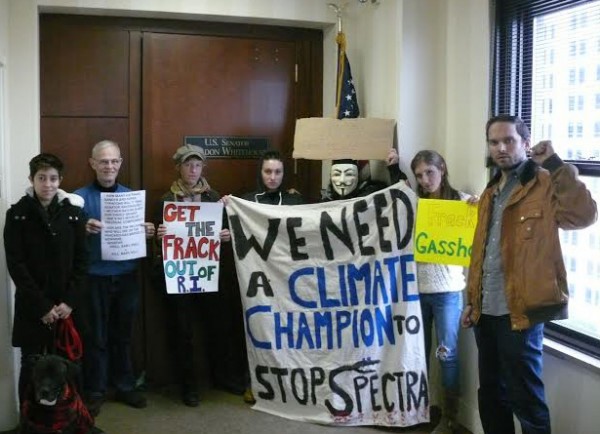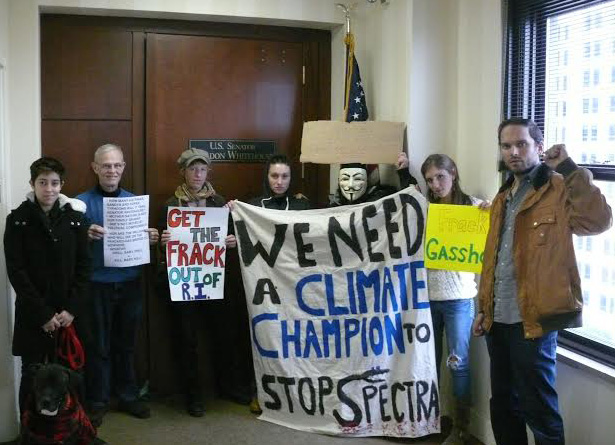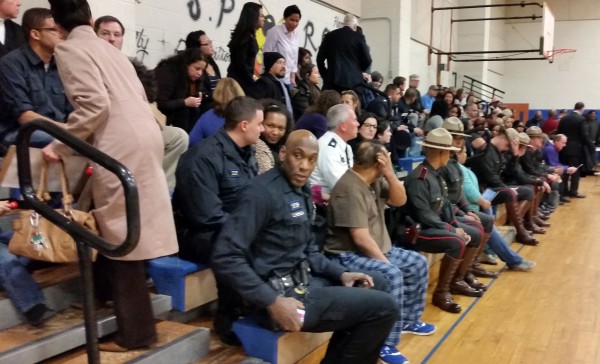Peter Nightingale, a URI physics professor, a Fossil Free Rhode Island activist and regular RI Future contributor, was intentionally arrested following a sit-in at Senator Sheldon Whitehouse’s Providence office, according to Fossil Free RI in a press release.
“If Senator Whitehouse is truly a climate champion, it’s time he lives up to that title,” Nightingale said in a prepared statement prior to his arrest. “Senator Whitehouse sees methane as a bridge fuel, despite scientific evidence that it is, in fact, no cleaner than coal. Continuing our reliance on dirty energy harms communities everywhere and the laws of nature require that we be well on our way to a transition to green energy within this decade.”
Nightingale was one of 10 climate activists who protested the potential expansion of the Spectra natural gas pipeline project at Whitehouse’s office today. The Spectra pipeline relies on fracked gas and passes through Burrillville, RI. The group calls themselves FANG – Fighting Against Natural Gas.

Sheldon Whitehouse, Rhode Island’s junior senator, is the one of the nation’s most well-known climate activists and senate’s most committed member to addressing climate change. His spokesman Seth Larson said Whitehouse may support the pipeline expansion project because it would help lower local energy prices.
“While the Senator is still reviewing the details of the proposed pipeline project, he generally supports the short-term expansion of natural gas capacity in New England to ease winter price spikes on consumers as we transition to more renewable energy over time,” Larson said.
“Senator Whitehouse personally met with these Rhode Islanders earlier this year to hear their concerns about the Algonquin pipeline,” Larson said. “The decision about whether to approve this pipeline project ultimately rests with the Federal Energy Regulatory Commission (FERC), and Senator Whitehouse is committed to making sure that Rhode Islanders’ views are heard during the review process. Indeed, he and Senator Reed urged FERC to hold a public meeting on this project in Rhode Island, which happened on September 16 in Burrillville.”
In November, three Fossil Free RI activists were arrested at Senator Jack Reed’s office in Cranston.



 Last night’s “
Last night’s “